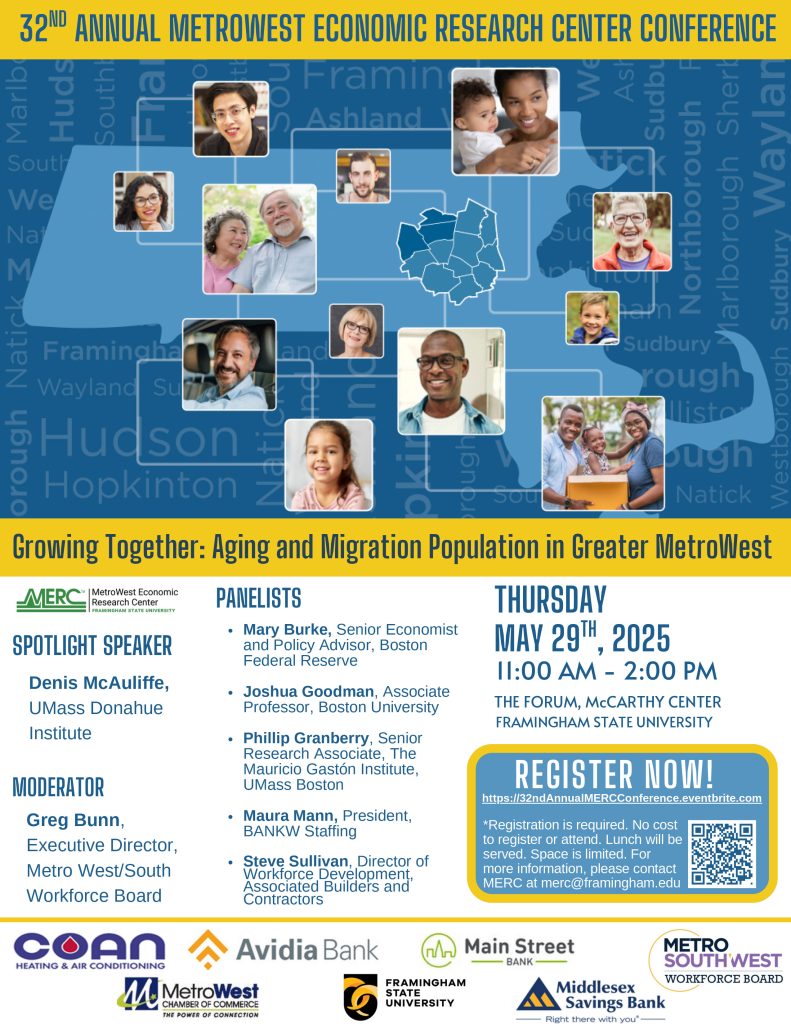32 ANNUAL METROWEST ECONOMIC RESEARCH CENTER CONFERENCE
Growing Together: Aging and Migration Population in Greater MetroWest
THURSDAY, MAY 29 , 2025
*Registration is required. No cost to register or attend. Lunch will be served. Space is limited. For more information, please contact MERC at merc@framingham.edu FRAMINGHAM STATE UNIVERSITY




